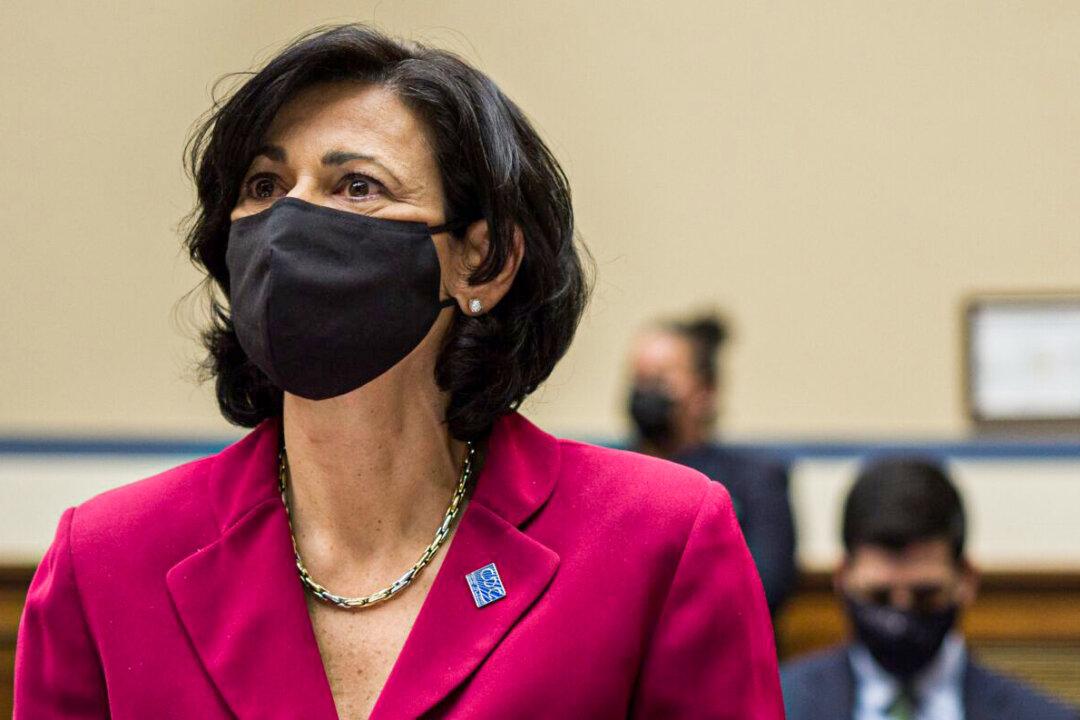Americans who are not willing or able to get the Pfizer or Moderna COVID-19 vaccines should get Johnson & Johnson’s COVID-19 shot, according to the director of the Centers for Disease Control and Prevention (CDC).
The CDC’s vaccine advisory panel recently recommended the agency make clear that the Pfizer and Moderna jabs, both of which utilize messenger RNA technology, are preferred over the J&J one. Dr. Rochelle Walensky, the CDC’s director, accepted the recommendation.






